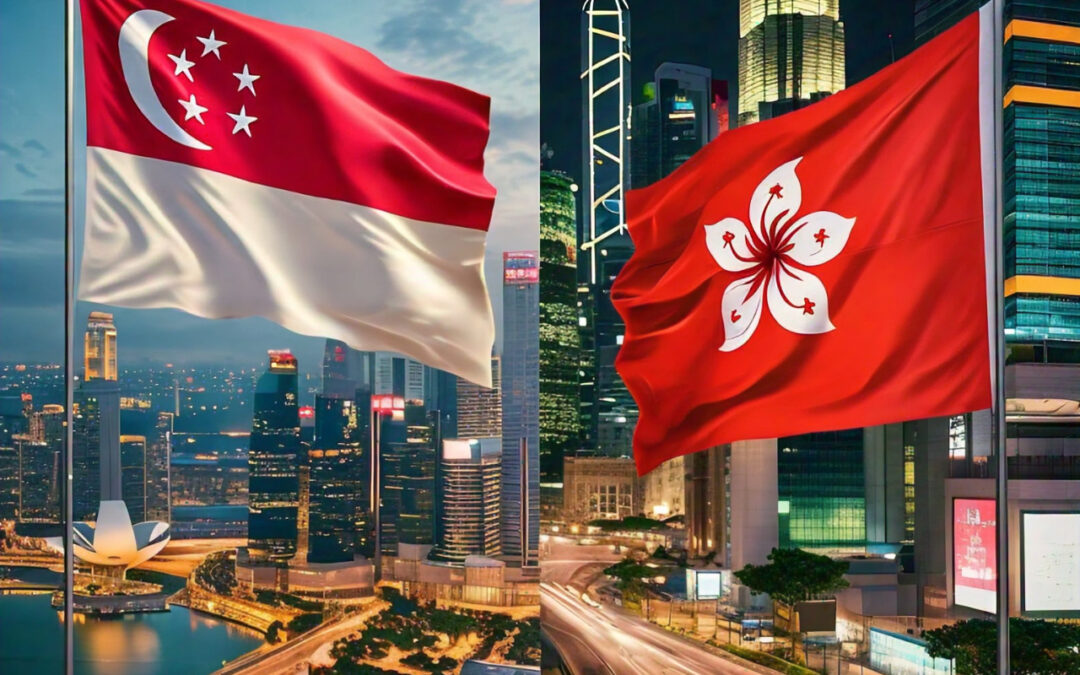When it comes to global business destinations, few places stand out as much as Singapore and Hong Kong. Both are well-known for their vibrant economies and strategic advantages, yet each offers unique opportunities that cater to different business needs. Whether you’re expanding your operations, setting up a new venture, or considering regional headquarters, understanding the nuances of both cities can help you make the right decision. Here’s a closer look at the key factors that set these two apart.
1. Working Conditions and Regulations
- Singapore: With its highly flexible and transparent regulations, Singapore consistently ranks high on the ease-of-doing-business index. The country excels in company registration, compliance, and licensing. Singapore also has a strong reputation for enforcing contracts and protecting intellectual property rights.
- Hong Kong: Hong Kong boasts a similarly business-friendly environment, with streamlined company registration and straightforward taxation. However, recent political shifts have raised concerns about potential regulatory changes and long-term stability.
2. Taxation
- Singapore: Characterized by a competitive taxation system, Singapore imposes a corporate tax rate of only 17% and does not impose any form of capital gain tax. The government also encourages start-ups as well as Research and Development activities through incentives while its extensive bilateral tax treaties serve international firms well.
- Hong Kong: It is also attractive for its corporate tax rate which stands at 16.5% without any form of capital gain taxes; there is a simple clear-cut tax regime in Hong Kong. More so, absence of VAT/GST means lighter burden on businesses.
3. Geographic and Strategic Location
- Singapore: Located at the intersection points of the world’s major sea routes, Singapore serves as the entry way to South East Asia and beyond. Thus granting easy access to fast-growing emerging markets in Asia.
- Hong Kong: Located on China’s southernmost tip, it’s a vital entry point to mainland China; ideal for companies wishing to enter into Chinese market due to its closeness with several important cities in China.
4. The Economic and Political Stability
- Singapore: Singapore is an attractive option for businesses looking for a trustworthy atmosphere due to its standing of political and economic stability, low corruption levels and strong rule of law.
- Hong Kong: Hong Kong was once a model of stability, but it’s political climate has altered recently owing to increased integration with mainland China; this raises questions about the future scenario for trade here.
5. Business Culture and Workforce
- Singapore: The business culture in Singapore emphasizes efficiency and creative thinking. Its labor force is diverse, highly educated and skilled; besides which, English is widely spoken as a means of communication by most people who do business in this country.
- Hong Kong: English serves as the language of commerce in Hong Kong which also boasts a skilled work force made up of individuals fluent in several other languages. The city’s commercial culture has long revolved around finance and trade making it a vibrant buzzing place to be at all times.
6. Cost of Conducting Business
- Singapore: For being known as an expensive destination for life or business, this often gets backed up by quality infrastructure, efficiency and productivity in workplace.
- Hong Kong: Generally speaking, most real estate costs in Hong Kong are lower than those in Singapore- especially outside key commercial areas. Even so, some districts still have high business costs.
7. Innovation and Technology
- Singapore: In order to enable innovation, the government plays a critical role as it establishes itself as the center of technology start-ups and international R&D projects. Being focused on becoming an International Technology Hub today the country leads on all the technological matters within this region.
- Hong Kong: On the other hand, despite supporting innovation and technology, Hong Kong’s ecosystem is less developed than that of Singapore. Nevertheless proximity to China gives companies access to one of the largest technology markets globally which is a massive advantage.
8. Financial Services
- Singapore: A prominent financial center on the world stage, Singapore excels in banking, finance and innovation in fintech. The country’s well-regulated financial system attracts businesses from around the world.
- Hong Kong: A major financial hub with a strong focus on banking and financial services, Hong Kong benefits from its integration into China’s Greater Bay Area, which is an area that is rapidly developing economically.
To conclude…
Both are highly attractive for businesses but this choice will rely solely upon what they need or aim to achieve. Political stability, innovation and ease of regulation are key factors to consider if you are considering making Singapore your home. If it is important for you to be near China and pay less taxes, then perhaps Hong Kong would suit you better.
Need help deciding? Our team is here to guide you through the process and help you select the best location for your business expansion. Contact us today to explore your options and make the most informed decision for your company’s future.


